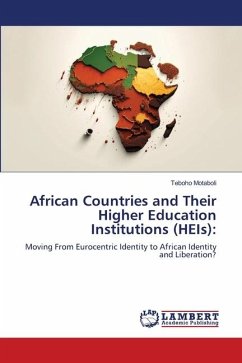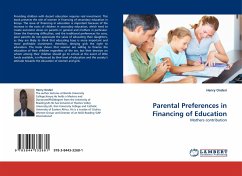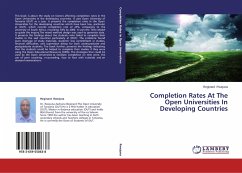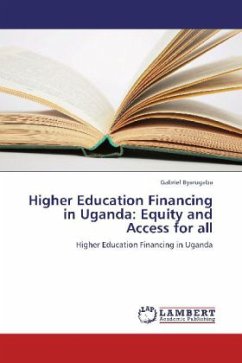
INNOVATION IN HIGHER EDUCATION FINANCING IN DEVELOPING COUNTRIES
THE POTENTIAL OF HELB LOANS IN EQUALIZING HIGHER EDUCATION OPPORTUNITIES EMPIRICAL EVIDENCE FROM KENYA
Versandkostenfrei!
Versandfertig in 6-10 Tagen
45,99 €
inkl. MwSt.

PAYBACK Punkte
23 °P sammeln!
Kenya, like many developing countries, has witnessed budgetary constraints forcing the Government to institute students' loans in financing university education for the needy, rather than grants. This book documents research based evidence which reveal that access to university education in Kenya is dominated by students from medium and high income families. Consequently, HELB loan financing for university education, though noble, it is regressive as a means of equalizing higher education opportunities. It also shows that there is inefficiency in loan recoveries from past recipients. Several r...
Kenya, like many developing countries, has witnessed budgetary constraints forcing the Government to institute students' loans in financing university education for the needy, rather than grants. This book documents research based evidence which reveal that access to university education in Kenya is dominated by students from medium and high income families. Consequently, HELB loan financing for university education, though noble, it is regressive as a means of equalizing higher education opportunities. It also shows that there is inefficiency in loan recoveries from past recipients. Several recommendations are made including the need to broaden the means-testing tool currently used by the loans Board in disbursements. It also recommends the need to amend the Act under which HELB operates presently in order to give it proper legal mandate to prosecute loan defaulters. The book is useful to university professors and graduate students in policy and financing of education in developed and developing countries and to administrators and managers of higher education loans.












